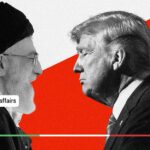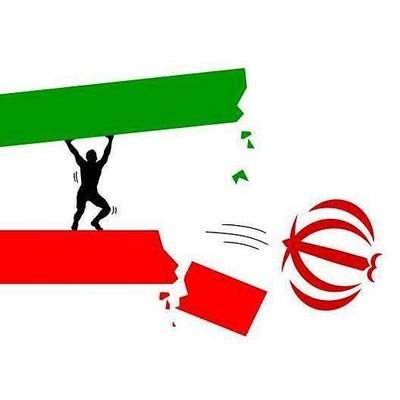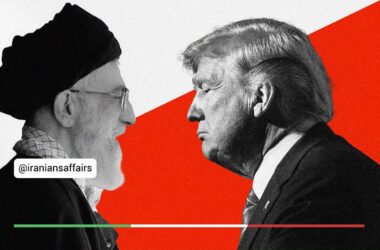With Israel’s targeted military actions against the missile and defense centers of the Islamic Republic, speculation about the continuation of military conflict persists. These speculations, often grounded more in a variety of factors than in precise analysis of the current state of affairs, sometimes even drift into wishful thinking. Nevertheless, based on current data, it is possible to forecast the likelihood, intensity, and extent of continued military engagement. To do so, several key factors must be examined.
The ceasefire in Gaza and Lebanon, as well as any developments on Israel’s southern and northern fronts, constitute the most significant factors. Whether Israel approaches its intended objectives or faces serious challenges and pressures on the battlefield or in the realm of diplomacy and relations with regional and global states will remain pivotal. The Islamic Republic, on the other hand, may refrain from prolonged conflict if it perceives any developments that mitigate the blows to its allies.
The military capabilities of both Israel and the Islamic Republic, along with its allied terrorist forces, are also critical influencing factors. The Islamic Republic possesses missile (and drone) power but has lacked a credible air force and navy for years. Its naval harassment tactics do not pose a serious military threat, though they should be considered for maintaining stability in the energy markets. The limited defense capabilities of the regime have been severely damaged during Israel’s “Operation Days of Repentance”. Therefore, reliance on missile strength alone cannot serve as an adequate foundation for sustained conflict. The so-called “axis of resistance” has been dismantled in Palestine, Hezbollah has suffered severe setbacks in Lebanon, and Syria has distanced itself from recent conflicts. In Iraq, despite the Islamic Republic’s wishes, significant constraints exist, and in Yemen, Ansarullah’s rebellious acts have been increasingly curbed. Thus, the Islamic Republic faces restricted military capabilities, especially considering that this war is not territorial; mobilization, battlefield operations, and presence will remain limited.
Conversely, Israel’s use of air power is its trump card, yet it too faces constraints. Since there are no compelling motivations for confrontation beyond incapacitating Tehran’s regime, regional and global support will be limited. Continuation of operations akin to “Operation Days of Repentance” would require significant backing from the United States and the United Kingdom. The extent of intelligence capabilities and the feasibility of complex operations (such as cyber-attacks like Stuxnet or targeted bombings) within Iran remain unclear. If such capacities exist and are combined with other measures like hacking and data disclosure, the short-term incapacitation of the Islamic Republic may occur. However, without regional and international agreements aimed at reshaping order, such actions would lack meaningful impact.
Another influential factor is the U.S. presidential election. A Trump victory would significantly influence Tehran’s decisions. The interim period before a new administration takes office could open opportunities for risk-taking and adventurism, with hopes of resolving issues differently amidst global and regional shifts. While a Trump administration would symbolize “maximum pressure” and “zero tolerance” for the Islamic Republic, in the current context, it might also give space to unconventional strategies and risks. Conversely, a victory by Kamala Harris would bring both long-term hopes and short-term concerns for the Islamic Republic. The Biden administration, under Harris’s leadership, could more readily fulfill its commitments to Israel against Tehran’s regional threats and make concerted efforts to refute allegations of enabling the Islamic Republic’s nuclear ambitions.
A further factor is the regional alliance and regional order
Whether the events of October 7, the swift unraveling of Hezbollah’s myth (a year after that), and the efforts of regional countries towards economic development, comprehensive security, and peace could lead to coalitions aimed at resolving regional issues, or whether the region will continue to pursue containment and deterrence strategies remains to be seen. The future of the Abraham Accords and the specifics of the “day after victory” plans for Gaza and Lebanon will be decisive. The regional consensus on the Islamic Republic’s destabilizing role or the potential for its participation in a new order will be scrutinized by regional states. China and Russia will also make efforts in this domain. The move to reintegrate Syria into Arab cooperation and friendships will be impactful. Israel is aware that without substantial changes to the regional order, escaping the October 7 crisis is unlikely.
An overlooked factor is also at play. In many analyses of regional and military developments, typical considerations such as military capabilities, security risks, political relations, and economic and energy constraints are discussed. Yet, as one colleague put it, understanding the future of any issue requires understanding the mullahs’ establishment. The perspectives of Tehran’s Ayatollahs may, beyond conventional calculations, be tied to a set of hopes that view phenomena like the emergence of ISIS in the Middle East, the return of the Taliban, or the war in Ukraine as factors bolstering their survival and solidity, believing that steadfastness in their desires will yield favorable outcomes. Supporters of the regime, influenced by the regime’s sophisticated propaganda, often harbor visions of victory and advancement, and understanding the durability and implications of these perceptions can impact the outcome of conflicts. Here, potential narratives and campaigns aimed at humiliating Israel could affect the course of the war. While Israel has refrained from publicizing the details of its “Operation Days of Repentance” strikes and has not pursued a strong narrative of triumph over the Islamic Republic or sought to humiliate the regime, it seems the Ayatollahs face less pressure in this context. However, a campaign of humiliation and the expectations of the regime’s supporters, coupled with the non-rational elements guiding decision-making in Tehran, could influence the continuation and intensity of hostilities.
The situation in Russia and Ukraine, as well as the ensuing shifts in the global order, while not as significant as the U.S. elections, could still affect the military conflict between the Islamic Republic and Israel, depending on the nature of Russia’s cooperation and agreements with the Islamic Republic (and North Korea and China), as well as the level of Western confrontations with the “Axis of Disorder.”
Additional factors could certainly be added to this list. Critical variables such as global market trends, energy conditions, deterrence strategies, policies for behavioral change and regime transformation in the region, and even the potential use of nuclear weapons (despite the absence of territorial threats against nuclear states) could be considered. The risk and level of intervention to secure energy transit in the Persian Gulf and the Strait of Hormuz (in support of the UAE’s claims) should also be noted, as should the view of the Saudi-U.S. agreement as a foundation for a powerful central alliance, akin to a renewed CENTO. Ultimately, both rational and irrational factors involving a wide range of actors exist.
Therefore, certain possibilities may be more likely than others. Should Trump win, the Islamic Republic may respond with another missile attack on Israel to create breathing room on the Lebanese front. This attack may coincide with heightened Russian activity in eastern Ukraine. The Islamic Republic will pose significant threats to its neighbors, emphasizing damage to energy infrastructure and transit while simultaneously calling for ceasefires across all fronts and pursuing deeper regional engagement.
The conflict appears set to persist, with Israeli resolve to address its challenges still uncertain. The issues at hand are exceedingly complex, with no signs of global resolve, sending a negative message for Israel. It seems the time for a “policy shift” against the Islamic Republic has not yet arrived. Although opponents of the regime have demonstrated, in recent months, their capacity and will to offer alternatives and create security and cooperation in the region, with signs of their potential success in representing disaffected citizens and forming a transitional government from diverse forces becoming apparent, obstacles and difficulties in accepting these matters and making serious, decisive choices remain.







